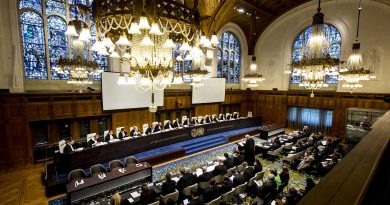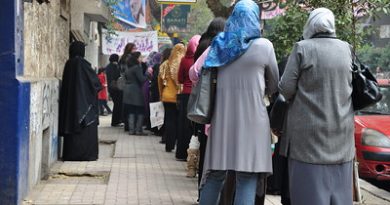Egypt holds peace conference amid Israel-Gaza conflict
Madeline Kruszczynski
Staff Writer
Egyptian President Abdel Fattah el-Sisi held the Cairo Peace Summit on October 21 to address the Israel-Gaza conflict at the doorstep of Egypt’s boarder. In el-Sisi’s opening remarks, he articulated his overarching objectives to establish a framework to end the “humanitarian catastrophe” prevailing the Gaza strip, furthering his position against the “liquidation of the Palestinian cause,” as reported by Al Jazeera. This statement effectively reflects the sentiment resonating within neighboring Arab countries, which harbor concerns regarding the potential influx of Palestinian refugees into their respective territories, thereby extending the conflict into their boarders.
This summit, attended by countries including Jordan, Palestine, Russia, China, the United Kingdom, the United States, and Qatar failed to yield any tangible resolutions. Critics argue the summit only widened the preexisting rifts between Arab leaders and their western counterparts. One pertinent factor contributing to the inability to establish a concrete solution can be attributed to the absence of key parties, including Israel, Iran, and senior U.S. officials.
Reflecting the views of many Western nations, Canada’s Foreign Affairs Minister Mélanie Joly said, “we support Israel’s right to self-defense in accordance with international law,” as documented by Time Magazine. This prevailing sentiment, consistent with most of the Western World and the U.S. as expressed at the Peace Summit, deems the immediate ceasefire called for by Arab nations and United Nations an impractical solution. Instead, many of the Western powers advocate a prioritization of the provision of increased humanitarian aid and confinement measures.
The United States’ endorsement of the non-call for a ceasefire was reflected by the decision of the U.S. Ambassador to the UN Linda Thomas-Greenfield to exercise a veto in opposition to a UN resolution calling for ceasefire. Thomas-Greenfield cited this decision by referencing the proposals absence to “mention Israel’s right of self-defense,” as reported by The United Nations.
Furthering the desire for containment, Pentagon spokesman Brigadier General Patrick Ryder told reporters, “Right now, this conflict is contained between Israel and Hamas, and we’re going to do everything we can to ensure deterrence in the region, so that this does not become a broader conflict,” reports Politico. The most striking potential avenues for the conflict to escalate into a broader regional conflict are through a Palestinian exodus into neighboring states, or the formal introduction of Iran into the conflict.
Arab nations, notably Egypt, Lebanon, and Jordan, have expressed apprehension regarding the potential influx of Palestinians seeking refuge in their countries. Lebanese lawmaker Wael Abou Faour insisted a “ceasefire is the only thing that can save us — Lebanon — as well as Egypt and Jordan,” Politico continues. The prevailing concerns revolve around the prospects that the displacement of Palestinians into these areas, such as into Egypt’s Sinia peninsula, would turn such regions into a base for warring between Israel and Hamas, according to Reuters. Most Arab states advocate for the establishment of an independent Palestinian state as the only real solution to the protracted Israeli-Palestinian conflict. Throughout the summit, el-Sisi retained the focus not only on the immediate conflict, but the resolution of the broader and long-standing “future of the Palestinian issue”.
Although the Arab states and Western states disagreed on the means of resolution, all participating parties agreed that there must be a focus on keeping Iran out of conflict. This relationship between Hamas and Iran merits close scrutiny, because as long as Hamas is supported by Iran, there will be fuel for violence, continued Al Jazeera. Furthermore, if Iran were to actively engage in the conflict, there is significant risk that Iran would close the Strait of Hormuz, one of the world’s most important oil artilleries.
Though no firm solution was made, the dialogue between the Arab nations and Western states serves to pursue the common interest of ultimately ending violence in the Israel-Palestine region.
Image courtesy of The Washington Institute




